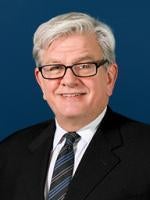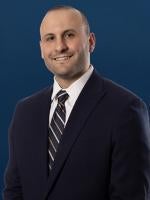On September 29, 2021, National Labor Relations Board ("NLRB") General Counsel Jennifer Abruzzo issued a memorandum describing her intent to treat scholarship athletes at Division-I Football Bowl Subdivision ("FBS") institutions as "employees" for purposes of the National Labor Relations Act ("Act") and hints at revisiting the NLRB’s Northwestern University decision that refused to extend collective bargaining rights to student-athletes.
The memorandum, GC 21-08, directs Board enforcement personnel to consult her office on cases in which Division-I FBS scholarship athletes assert any rights granted to employees under the Act and states her intent to treat the athletes as employees for such purposes. Abruzzo's memorandum, in addition to an earlier memo issued in the wake of the Northwestern decision, GC- 17-01, focuses on Division-I FBS scholarship football players, opining that they are "employees" because their athletic endeavors create substantial revenue and other benefits for their institutions, and thus their play should be considered the provision of a service to the school.
Abruzzo also considers scholarships a form of compensation for their athletic abilities, and the level of control over the players to be high. Thus, she concludes that all the requirements of common law employment—i.e., services delivered under the control of the employer in exchange for compensation—are met. Left unanswered is to what extent "other similarly situated" athletes in other sports are covered, but for now, the General Counsel's focus appears to be limited to sports that generate substantial third-party revenue. Finally, the memorandum explains Abruzzo's intent to consider it an unfair labor practice for schools to wrongly classify student-athletes as non-employees because this will interfere with their assertion of rights under the law.
Generally, public colleges and universities do not fall within the jurisdiction of the NLRB. However, the General Counsel warned that in certain situations, she will request the Board to assert jurisdiction over the NCAA and an athletic conference, "and to find joint employer status with certain member institutions, even if some of the member schools are state institutions."
The immediate effect will be to allow Division-1 FBS athletes to claim protection under the Act should they engage in "protected concerted activity" and suffer any "retaliation" for having done so. Indeed, one could argue that the memorandum provides a roadmap for how an athlete should proceed. Protected concerted activity is a broad concept including any group conduct that seeks to alter the terms and conditions of employment, and the Act prohibits retaliation against employees who engage in the protected activities. For example, if two or three players complained to the athletic director that their coach was unfairly distributing playing time and asserted that they were cut from the team as a result, under the new memorandum those players might have a claim under the NLRA for retaliation and could seek damages. Actions short of withdrawing the scholarship might also qualify as retaliation. For instance, an athlete could possibly claim he was withheld from competition in retaliation for protesting racial or other discrimination.
With her memorandum, the General Counsel may be inviting a test case to bring to the Board. To avoid being the guinea pig, institutions should carefully review adverse decisions relating to athletic aid or status of athletes in revenue sports to assure that there is no colorable claim of retaliation for a protected concerted activity. Institutions should also develop a carefully crafted response to whether they consider their student-athletes to be employees to avoid the General Counsel's theory that merely telling an athlete they are not an employee interferes with their rights under the law.






 />i
/>i

